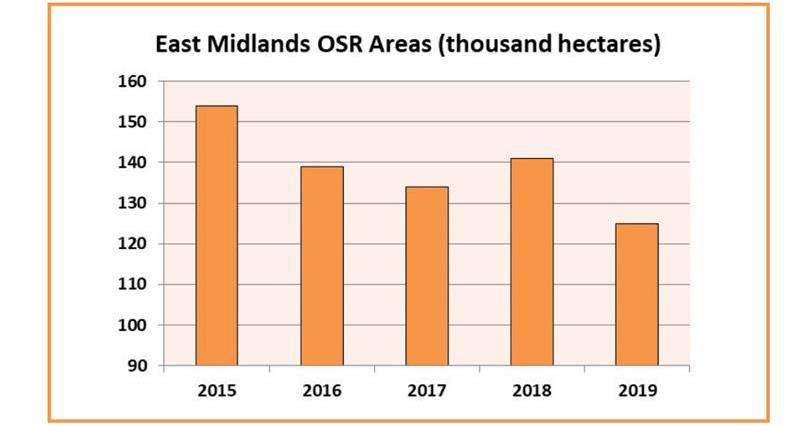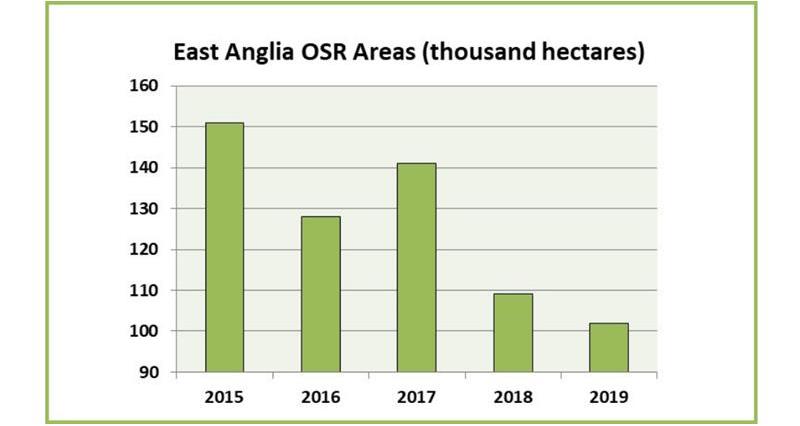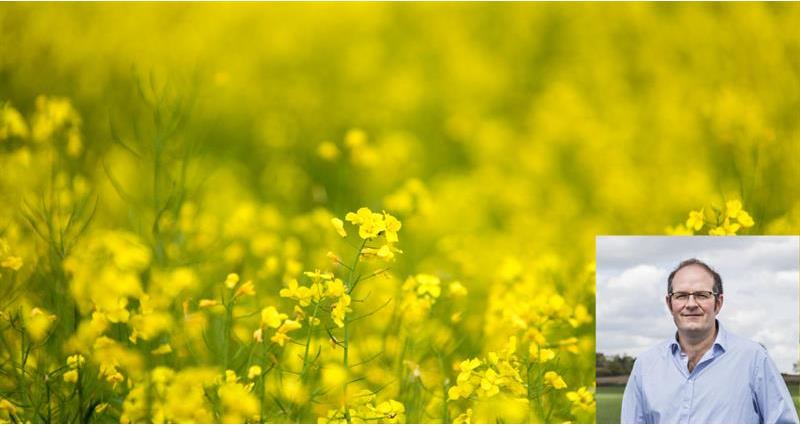Their recent June estimates indicate an additional decrease of 60 thousand Ha from their early bird survey figures (582 thousand Ha) back in November. However, as unaccountable losses would have been seen in August and September 2018 before the survey was carried out, these figures do not showcase the full extent of the losses.
In particular East Anglia and East Midlands have seen a huge decline in their OSR levels over the past five years, losing approximately a third of their growing area, but the declining pattern is evident albeit on a smaller scale across England and Wales.
Poor establishment in the dry autumn followed by unprecedented cabbage stem flea beetle damage are two driving factors in declining oilseed rape areas.


The crop is less vulnerable to a no deal Brexit, since the EU OSR market is in deficit and therefore does not impose tariffs on the commodity. But, the falling levels of the crop have seen the UK’s position shift from net exporter to importer, and there is nothing in place to protect British producers from imports that were grown using neonicotinoid products. As such, the availability of cheaper produced imports coming from large scale global producers with access to chemicals which would be illegal here will undermine the tighter UK supply.
NFU Combinable Crops Chairman Thomas Bradshaw said:
“Falling areas of OSR are a major cause of concern for UK farmers, with the potential to undermine the stability of our arable rotation. Options for break crops are becoming more limited and a diverse rotation is critically important for the delivery of IPM as well as affording resilience to crop production. Policy changes causing the loss of important neonicotinoid seed treatments mean many farmers are, for the first time, facing elevated crop failure risks resulting in a falling OSR area, and will not be able to justify the risks now associated with the crop. This increases our reliance on imports as well as reduces a vital food source for pollinators. OSR is also one of the most important breeding season habitats for Reed Buntings, providing a relatively rich source of seed and invertebrate food and possibly protection from nest predators; an unintended consequence of neonicotinoid ban could see these birds return to the Red List.
Help to mitigate the risk of growing OSR is needed imminently in order to secure this crop in the rotation. The risk is unprecedented and unpredictable whilst also being hugely variable across seasons, making decisions on farm incredibly difficult with the easy and risk averse answer being to cut OSR out altogether. Wide rotations with numerous break crops are integral to an IPM approach for holistic crop management, and to retain biodiversity in the countryside, providing public and environmental goods.
Industry and government need to work in partnership to find innovative ways to manage the risks of growing this important crop, otherwise British OSR may no longer be viable, impacting the stability of the UK crop rotation in addition to threatening the supply of pollinator food.”
